|
Jesus stood among them and said, ‘Peace be with you’. After he had said this, he showed them his hands and his side. Then the disciples rejoiced when they saw the Lord. Jesus said to them again, ‘Peace be with you’. (John 20:19-20)
I’ve always been moved by this moment in John’s gospel. The scene comes after the crucifixion, and after the resurrection (if you are reading this at the start of April, then this passage is next Sunday’s gospel reading). By this time Jesus has overcome death and the tomb, and now stands before his friends. Christians like me believe that Jesus is God, who created the universe out of nothing, and so you might expect Jesus to be dressed accordingly, radiant in glory, surrounded by angels. But no, he meets with his friends bearing the wounds that caused his death, his broken body on display. Kintsugi is the ancient Japanese art of repairing broken pottery, bringing the pieces back together to restore their wholeness in a new way. The craftsperson uses a pure gold lacquer to bond the broken pieces into a treasured work of art. All the cracks and damage are not only on display, but they are honoured by the preciousness of gold. Western methods of repair work do their very best to hide the cracks, attempting to fool the owner that nothing has been broken, and nothing has been repaired. The best examples can be seen on the wonderful BBC One tv programme – The Repair Shop. Not so with Kintsugi. And not so with Jesus. His body showed the cost, as well as the glory. Kintsugi pottery is beautiful. Somehow through its renovation it becomes more complete, and more treasured than it was before. And so it is with God’s grace and our lives. The grace which we receive from God is the gold lacquer that binds us together, a gold seam, like lightning dancing through life of the church, bringing not only each of us together, but heaven and earth to. It is spoken in words of peace and forgiveness, in words of love and understanding. It means that even in the most difficult and challenging of times the peace of Christ can make us whole. ‘Peace be with you’ he said. ‘And also, with you’, we say. As Ruth and I move on, we go having been recipients of grace, and of peace. We leave here having received far more in kindness than we feel we could ever repay. And we leave having shared life with many we now call friends. Thank you for everything. May the peace of God be with you, and with all whom you love, now and always. Revd Jeremy Putnam Dear Friends,
During our church services on Sunday 10th March I shared the news of my resignation as Priest in Charge for the parishes of Offwell, Widworthy and Farway, this was following a meeting with the churchwardens and following the tendering of my resignation with the Rt. Rev’d Jackie Searle, Acting Bishop of Exeter and Bishop of Crediton. The decision to resign was not made lightly or quickly but came after much discernment and prayer over many weeks. The decision was made in response to several clear indications that my ministry didn’t have the full local support and trust that I needed to continue. Ruth and I feel deeply saddened that we will be leaving Offwell so soon. We have both felt tremendously welcomed by the village community in Offwell since we arrived in 2022, and have felt at home here from day one. We don’t currently know where we will be moving to, but we trust in God and expect that we will find a home in due course. Just in case there is any doubt, and to help clear things up, I have not received a better offer. And I was not asked to leave. I am also not going on to ‘bigger or better things’ as has also been said. Nor am I leaving parish ministry; or moving into town or city ministry. When I moved to Offwell, it was because I felt deeply called to support rural churches, that so often find being a parish church harder due to limited resources and reduced priestly ministry. In addition to this, my ministry in Offwell, Widworthy and Farway also helped inform my paid job as Mission Enabler for the CofE across Devon, in a way that added further value to the perspective of rural parishes in strategic decision making. More importantly however, Ruth and I moved here because, before applying, we met and spoke to people living and working in these parishes, and we were made to feel very welcomed. We also read the ‘Parish Profile’ which is the document that the parish churches use to articulate what they are looking for from their parish priest. Ruth and I felt at ease, and had a sense of peace that we could do some good here, and make Offwell our home. We feel very sad and very sorry that it hasn’t worked out. My intention was to lead the church services through Holy Week and then finish on 31st March with an Easter sermon. However, for reasons I will not share here, I no longer feel able to do that. The Archdeacon for this area, the Venerable Andrew Beane, has offered his support, which I am incredibly grateful for, and he has spoken to the churchwardens to offer cover for the services. My notice period has not yet been served in full, and I will be using this time to continue offering pastoral support and prayer ministry. I will also attend events as much as possible in my capacity as a resident priest. I have not disappeared. I will attend events where I am invited, up until when my last day of ministry is announced. Ruth and I have received many lovely and kind messages from residents and church members which we have really appreciated. It has felt like a big warm hug from friends and neighbours, which has certainly helped to pick us up from the sadness of having to make a decision like this. Thank you so much, it has really helped. Revd Tracey Voysey has also been a wonderful support to me, and to Ruth over the last few weeks. Tracey has been a wise voice, a listening ear, and an understanding and supportive friend. And for that we feel extremely blessed. My last pastoral message for the parishes will be in the Link Newsletter this month, and with it I convey my sincere and heartfelt thanks to you all. For everything. It has been a lot of fun with plenty of joy, and there is more to come for these parishes. For that I am certain. Yours in the love and faithfulness of Christ. Jeremy (and Ruth). The Mothering Sunday Service at St. Mary’s, on 10th March, will be taken by Revd Canon Jane Wilson. Now retired, Jane was Rector of the United Benefice of Offwell (then five churches) between 2007 and 2012. This March the church also celebrates the 30th anniversary of the ordination of women priests into the Church of England. In March 1994 the first women were ordained in Bristol and on 16th April 36 deacons, including Jane, were ordained at St. Paul’s Cathedral in London. Alongside her was the Rt. Rev Jackie Searle, Bishop of Crediton, who at the time was eight months pregnant with her first child.
The Movement for the Ordination of Women was founded in 1979. After 19 years of debate it was on 11th November 1992 that the Church of England’s General Synod finally voted in favour of women’s ordination. The day was described as ‘a day of tension’ and the public gallery as well as the press gallery of the assembly hall in Church House had been packed from the moment the doors opened; the expectant crowd overflowing into other halls with television screens. The debate would continue for an exhausting six hours. The arguments for and against were powerful, anguished and emotional. Dr. David Hope, then Bishop of London, spoke with ‘considerable reluctance and anguish’ against the motion, saying that “in all honesty I am very open to the fact that I may well be wrong”. Dr. Carey, then Archbishop of Canterbury, acknowledged the pain some would inevitably feel but hoped: “with all my heart that Synod will affirm the place of women in the priesthood”. John Gummer, MP, ‘came out all guns blazing’ deploring, according to one witness, ‘that the Church should waste time on this issue instead of winning souls for Christ.’ And the Bishop of Fulham felt he could not compromise with tradition “otherwise I risk my soul”. By late afternoon everyone was exhausted and the tension was unbearable. During the vote many were in tears. When the result was announced women hugged and kissed, singing ‘Jubilate Deo’ well into the evening: ‘The relief was like a tidal wave engulfing us.’ Those who felt defeated came out distraught, even some of the men were in tears. By the time the General Synod next met many priests and lay members had taken the decision to leave the Church of England. Jane’s ordination in April 1994 was hardly less dramatic. A determined opponent of the ordination of women, the Rev Paul Williamson, had fought an unsuccessful campaign to prevent the Church of England ordaining women priests. During every ordination ceremony the congregation are asked: “Is it your will that these people are ordained?” To prevent Rev Williamson from disrupting this part of the ceremony the Bishop of Willesden, the Rt. Rev Graham Dow, allowed Rev Williamson five minutes to state his objections before the question was asked of the congregation. The 36 women deacons about to be ordained had spent the previous week in Retreat, in quiet prayer and reflection. Now they were gathered in St. Paul’s Cathedral with supportive family and friends for this joyous and momentous occasion. Rev. Williamson stood up for his allotted five minutes and continued to lambast the congregation with accusations of ‘heresy and apostasy’. As the onslaught continued beyond his allotted time the male priests in the congregation began to wave their service sheets and shout ‘TIME – ENOUGH!!’ When the 36 women deacons finally stood, faced the congregation and Bishop Graham asked the question: “Is it your will that these people are ordained?’ two thousand people leapt to their feet, cheered and shouted YES – IT IS OUR WILL!” Many of the women were in tears and emotional at this great moment of joy and celebration, as was Jane in the re-telling of these events. After so many years of struggle the Church had finally come to this momentous decision to ordain women as priests. CAROL HAYES March 2024 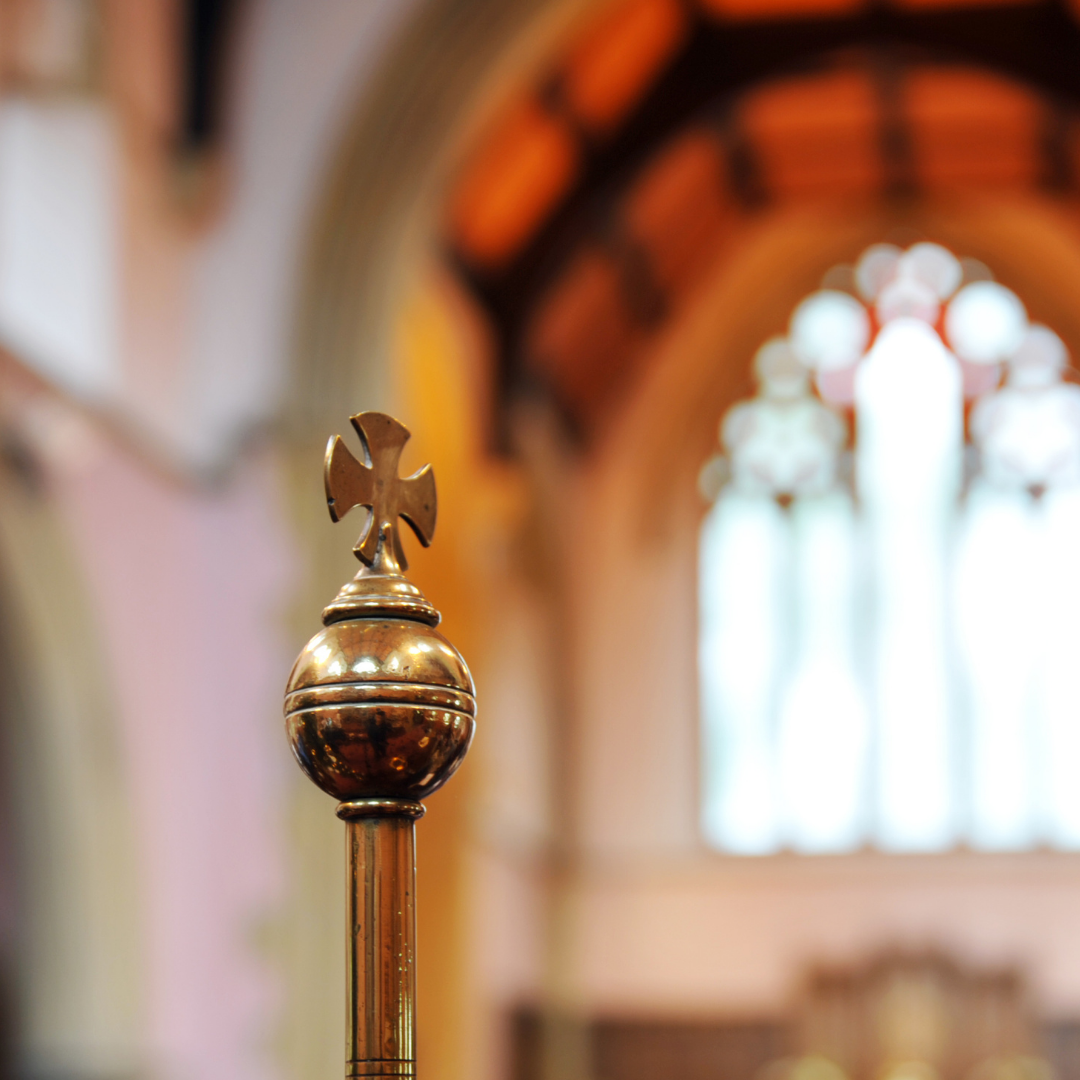 T.S. Eliot is probably the most well-known churchwarden. A deeply religious man he was churchwarden at St. Stephen’s in London for 25 years. Today churchwardens are often described as the unsung heroes of the Church of England. This ‘vaguely specified job’ broadly covers management, maintenance and mission; the foremost duty being to: ‘represent the laity and co-operate with the parish priest in the encouragement of true religion, unity and peace.’ The office of Churchwarden dates from the 13th Century, and is thus one of the earliest forms of recognised lay ministry. The primary function of the office at that time seems to have been that of taking care of the Church building and its contents, including the responsibility of providing for the repair of the nave, and of furnishing the utensils for divine service. In earlier times the Offwell churchwarden was also responsible for distributing awards for destroying vermin, kites, moles, badgers, foxes and crows. He was assisted by a Parish Clerk, an elderly gentleman in receipt of Parish Relief, who was often given an additional fee for ‘Dog whipping’ which meant turning out dogs who had entered the church during services. Most importantly churchwardens had custody or guardianship of the fabric and furniture of the church, and even today they are the legal guardians of the church’s moveable goods, such as furniture, plates and ornaments. They also have a duty to look after the church building, the overall aim being to pass on to your successor ‘a building that is in a better condition than the one you found it in’. Many old churches are dusty, cold and damp and the worst of these is the damp. One churchwarden was recently instructed by his diocese architect to: “Look after the water that falls on the roof and goes into the gutters, the hoppers and downpipes, then into the drains and away from the building; if you do that you have done four-fifths of the job, and the church won’t fall down on your watch.” Which is all very fine but repairs and renovations to Grade I and Grade II listed buildings have become prohibitively expensive, particularly for rural churches with declining congregations and ‘unsung heroes’ for churchwardens, not men and women of great wealth. In Offwell we were fortunate to have the prosperous Copleston family as rectors from 1772 until 1954, as well as dominant families like the Collins’ who were of ‘superior status and wealth’. One long serving churchwarden was Emmanuel Dommett, who served as churchwarden over a period of 60 years in the late 18th, early 19th centuries. Dommett was a wealthy landowner and benefactor and at the end of his life he gave £120 to the village land trustees to be used for charitable purposes. In 1824 most of this sum (£99) went towards the purchase of local land with timber, the income from which was to be used for the education of the poor. The remainder of Emanuel Dommett’s gift was for the building of a house for the village schoolmaster; Dommett having already provided the land on which Bishop Copleston would build Offwell School in 1841. Throughout the centuries churchwarden accounts note a never ending list of yearly payments for musicians, repairs to bells, new bells, ropes, windows, lintels, curtains, pews and stonework. In 1811 two masons were employed to replace 114 cubic feet of stone and set in new windows. The stone and sand were dragged by horse and plough from Honiton, a task that took two men and three horses four days. The expenditure for that year amounted to £113 10s 2d; in 1815 it was new timber and slates for the roof with a total expenditure of £213 1s 8d, well over £21,000 in today’s money. Two hundred years after Emmanuel Dommett bequeathed land for Offwell School the present churchwardens are about to embark on grant funding in order to renovate and re-order the interior of St. Mary’s. The hope is that by widening the nave aisle, this will enhance the space for weddings, funerals and those with mobility issues. Renovation to the box pews will ensure they can continue to be used for years to come and the repositioning of the 15th century font, to its original location in the south aisle, will create more space for groups to meet and for hospitality to be provided. Church re-ordering projects take many years to reach completion. At St. Mary’s discussions began back in 2009. It has taken dogged determination and an ‘unsung hero’ mentality to get us to the starting line. Let us hope that 2024 will be as important a year for St. Mary’s as 1824 was for Offwell school. NB. For more information on the re-ordering project please go to St. Mary’s page on the Benefice website www.parish-church.com or www.offwell.church By Carol HayesBy Carol Hayes
As Remembrance Sunday draws near our thoughts turn more and more towards those we have lost and those who are nearing the end of their lives. While there’s a growing focus on youth and young families Anna Chaplaincy offers support for older people, both emotionally and spiritually. They are named after the widow, Anna, who appears with Simeon in Luke’s gospel. Both are good role models of faithful older people and Anna Chaplains are there for people of strong, little or no faith. Anna Chaplains visit the elderly wherever they may be living, whether in residential or nursing homes, sheltered housing, retirement complexes or other private homes. The emphasis is on spiritual support but people’s practical struggles will also play a part in their overall wellbeing. Increasingly many older people are feeling that they are beyond the interest and concern of their wider community and even, sometimes, their church. Life for the elderly can be isolating as well as challenging. Spiritual support provided in a gentle and loving way brings comfort and succour to people who may be at a low point in their lives, enabling them to live with greater meaning and purpose. Some of those who become Anna Chaplains, or Anna Friends, are themselves post-retirement and discover new meaning and impetus through helping others. Ellen Holah is a Community Police Officer in Exeter. She has been an Anna Chaplain for two and a half years and she spoke to me about how it all came about: “Through my police work I came into contact with an elderly lady of 99, who thought she had been scammed on the ‘phone. She was still living on her own, was profoundly deaf, losing her sight and she’d had enough of life. She tried various times to end it all and the only relative was an 86 year old niece, living in Cardiff. I was upset and appalled by this elderly lady’s situation so I contacted my Bishop and she told me about Anna Chaplains. That was during Covid and I began my training on-line. Sadly, help was too late for this 99 year old as she eventually succeeded in taking her own life.” Ellen visits anyone living in her parish. Some will have a strong faith, some will not. At the moment Ellen is visiting a 99 year old once a week. Her daughter rang the pastoral team asking if someone could visit and Ellen now sends regular texts to the daughter who is unable to visit her mother herself. Then there is 90 year old Dora, who Ellen also visits once a week; John at 80 years old, every fortnight, and Annie at 99, who Ellen visits every four to six weeks. Annie has family visitors so is not so isolated. Although Anna Chaplains will visit people in care and residential homes Ellen prefers to visit the elderly who are still living in their own homes: “Everyone is different and everyone wants to talk about different things. When I first visited Dora she had no contact with her family or anyone else, apart from someone who did her weekly shop. It is so rewarding to see how she has blossomed over the years I’ve been visiting; she is a much happier person. With Annie the family are often present. I’m not sure where she stands with the Lord but the family seem very comforted when I pray with her. Then there’s Bea, a vet’s wife and farmer’s daughter. She loves blood and gore, and can’t wait to ask me if I’ve attended any grisly ‘call outs’ doing my day job.” There are both Anna Chaplains and Anna Friends. The Anna Chaplains take the lead in church and the Anna Friends volunteer as helpers. The Friends don’t take on the full responsibility of the Chaplains and there is less on-going training. Ellen would encourage everyone who cares about the welfare of the elderly to get involved: “If you have a heart for the older person then becoming an Anna Chaplain is incredibly rewarding. I feel I have gained as much, if not more, from my relationships with the people I visit. If, initially, you are a little wary of becoming an Anna Chaplain then try volunteering as an Anna Friend first – you can always go on to become an Anna Chaplain later.” To find out more information go to: www.annachaplaincy.org.uk There you will find details about Anna Chaplains in your area, how to apply to become an Anna Chaplain and how to request a visit for an elderly relative or friend. The Acting Bishop of Exeter, the Rt. Revd. Jackie Searle
I invite you to join our Archbishops in prayer for all who are suffering in Israel and Gaza, for an end to the violence and for a just and lasting peace. Almighty God, we pray for the many people whose lives have been torn apart by conflict in Israel and Gaza. We remember especially those who have died, those who are grieving, the injured or captured, those now without food, shelter, or medical supplies. We pray also for those who have the power to bring peace, for your spirit of truth, reconciliation, compassion and justice. Through Christ our Lord, Amen. All three churches celebrated Harvest on Sunday 1st October. Parish Communion took place at 9.30am at St. Mary’s followed by an 11.15am Harvest Celebration at St. Michael & All Angels and a 3.00pm Harvest Celebration at St. Cuthbert’s. In each of the three churches Revd. Jeremy was surrounded by magnificent displays of flowers, fruit and vegetables, as everyone gave thanks for ‘crops gathered in’. Harvest Supper at St. Mary’s took place in Offwell Village Hall on Friday 6th October. A hot supper was served, followed by entertainment with Revd. Jeremy acting as MC. Everyone joined in with Mustingo, a bingo styled game where song titles are substituted on a bingo styled card in place of numbers. Much fun was had by all and thanks must go to everyone involved with organising such a successful evening. Some of the harvest displays in St. Mary’s can be seen on www.offwell.org (Photo Gallery) with the names of those who produced the displays.  In Farway Harvest Supper was celebrated on Saturday 23rd September with a Barn Dance in the Village Hall. It was a sell-out success with local band ‘Slack-Ma-Girdle’ boasting an ‘impressive selection of instruments’. There was a prize for the best dancer and a prize was awarded to the longest rider on the Mechanical Bronco. Burgers, sausages and veggie options were on offer, along with ‘cheese or hot stuff’ toppings, all included in the ticket price. Never say farming families don’t know how to properly celebrate harvest time, no matter what the weather may choose to throw at them. One has to admire their constitutions – barn dance, rodeo riding, bar and burgers with hot stuff! Again thanks must go to the Village Hall committee for putting on such a successful evening; the first Barn Dance held at Farway for many years. In Widworthy the Offwell ringers rang the five bells at St. Cuthbert’s before their service in the afternoon, after ringing the six bells at St. Mary’s in the morning. The church was beautifully decorated with flowers, fruits and vegetables. It was Billy Anne Leach’s first Harvest service as the new owner of Widworthy Barton. Billy assisted Bishop Oliver in leading the service of thanksgiving with a talk about the joys and variety of the Devon produce, remembering those who have less than us, of which there are so many. Good voice was given to the traditional harvest hymns and following the service everyone went across to Widworthy Barton for a cream tea, put together by some of the ladies of the regular congregation. Special thanks must go to Carol, Kate, Mary and Mim. There was also a raffle with lots of yummy prizes to raise funds for the church. Thanks must especially go to Andrew and Billy Anne Leach for so generously welcoming everyone into their home for the Harvest tea. When Revd. Putnam at the Offwell Mission Community asked me if I would write a piece for Honiton News about the Book of Common Prayer services at St. Mary’s I started to browse books and websites for inspiration. It very soon became clear that despite the decline in church attendance churches offering on-line services from the BCP were seeing unprecedented engagement with hundreds choosing to ‘tune in’ to a more traditional offering. It has been said that the Church of England’s doctrine is to be found especially in its worship. If this is true then it’s above all tribute to the creative genius of Thomas Cranmer. His first Book of Common Prayer was issued in 1549, followed by the second in 1552, which looks and feels much like the 1662 Book of Common Prayer still in use in the Church of England today. The BCP language is variously described as having: ‘extraordinary simplicity and gravity… beauty and dignity’. It was in the 1960’s that the gradual decline in churchgoing turned into a sharp contraction and by the 1990’s many members of the church felt that the 1662 Prayer Book was: ‘a poor vehicle for contemporary worship’. They were demanding much greater informality and flexibility to worship. The Alternative Service Book (ASB) was finally produced in 1980 but it adopted a radical approach to the rewriting of familiar texts. The ASB satisfied neither those who wanted something closer to the rhythms and language of 1662 nor those who wanted the language to reflect contemporary concerns, such as gender inclusivity. The ASB was superseded in 2000 by Common Worship, a library of services in several volumes, giving far more variety than its predecessor. As Church of England congregations continue to decline The Book of Common Prayer is enjoying a revival, despite the best efforts of some modernists to mothball it. This enthusiasm has increased since the pandemic with churches advertising ‘Matins n’ Brunch’ or ‘Evensong n’ Curry’. One West Country vicar has confessed that: ‘… ten years ago during a spring clean I tossed around 60 pocket-sized Prayer Books into a black bin bag and drove them to the tip. What was I thinking!’ While this renewed popularity may well have been helped by the late Queen’s insistence on funeral rites from the Book of Common Prayer, it is overwhelmingly led by millennials. What the 1960’s revolutionaries wrote off, a younger generation is embracing. BCP Evensong is held at St. Mary’s Church, Offwell, on every 2 nd Sunday of the month at 5.00pm; BCP Holy Communion is held on the 4 th Sunday at 10.30am. All Offwell Mission Community services can be found on www.parish-church.com By Carol HayesA man who had been stranded on a deserted island for two years was at last found. The media accompanied the rescue team, and when they arrived they saw that the man had built three huts. When asked what the huts represented, the man explained.
"Well, this hut is my home. And that hut over there is where I go to church." The reporters seemed moved by the revelation that he had a place of worship. But then one asked, "What is that hut over there?" "That's the church I don’t go to!” Life is full of preferences. Like the simple pleasure of choosing your favourite ice cream. Rum and Raisin for me thanks! Desserts aside, our own partialities can be deeply-rooted. Our environment has its way of honing a ‘comfortable place’ for us, so we feel a sense of ‘being home’ and experiencing peace. And as a result, we tend to look for reminders of ‘home’ as we journey through life; subconsciously searching for familiarity and safety. This month Ruth and I celebrate one year since our move to East Devon. Settling-in takes time, and getting to know people and places, can take years. But with each day, the churches, the parishes and our communities feel more like home to us. I am often reminded of this when I find myself being part of the welcome, rather than being welcomed. A thought: Where is your ‘home’? For me, home is the place I return to. Sometimes, that is when I return to prayer or worship. At other times it is a physical place where I find rest and peace. It is summed up beautiful in St Augustine’s prayer. “You have made us for yourself, O Lord, and our heart is restless until it finds rest in you.” I suppose I’m saying home is where I experience the presence of God. Anyway, back to the three huts: home, the Church I attend, and that third place, the Church I don’t attend. I think Jesus spent much of his time in the third hut, the place where others chose not to go. Where is that third place for you? Where have you not ventured? It might not be a place, it might instead be a thought or an idea. It could be faith, religion or church. It could also be time spent with an old friend, a neighbour, or even someone that you don’t get on with. I encourage you to go to that place. See what you find, you never know you might find home is there too. 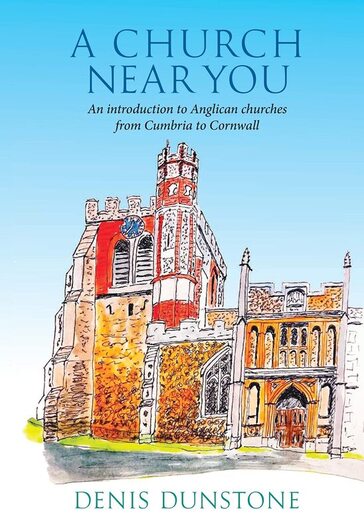 ‘A Church Near You – An introduction to Anglican churches from Cumbria to Cornwall’ by Denis Dunstone (with a Foreword by Simon Jenkins) During the Spring and Summer of 2020 Denis Dunstone, a former BP executive, set out to draw in colour fifty churches within half an hour’s drive from his home in Essex. It began as a relief from lockdown boredom but as the restrictions persisted so did Denis and further counties were added in his quest to visit and illustrate Anglican churches in 19 counties across England and Wales, all built before 1700. As the cover explains: “…it does not claim to be a history of Anglican churches nor an expert analysis. It is rather a valuable and helpful introduction to the subject, beautifully illustrated and seeking to point out major characteristics, to explain some peculiarities and to stimulate curiosity.” Essex claims to have the oldest surviving wooden church in the world while Northamptonshire has the oldest large church surviving in Northern Europe. The book includes examples of Norman blind arcading, late medieval towers, external turrets built to provide steps to the belfry, the tallest church, the highest spire, drive through towers and many interesting facts ‘to stimulate curiosity’. In the Celtic style of church it was the custom in England to enter a church on the south or north side. Originally this was because the colder north side of a church was regarded as the Devil’s side, and, at the moment of Baptism, he needed a door through which to escape. In Lincolnshire the tower at Dry Donnington leans 5.1 degrees from the vertical compared with a mere 3.9 degrees at Pisa, while earth movement at Cwmyoy in Monmouthshire has caused the church to be seriously contorted. While the nave remains upright, the chancel and tower lean sharply in opposite directions; the tower being held up by massive buttresses. Sadly there is only one Devon entry, St. Mary’s at Ottery St. Mary, and the author acknowledges one of the book’s drawbacks, that while concentrating on the exterior many wonderful treasures inside are overlooked. Nevertheless, for anyone contemplating a ‘visiting churches’ holiday this summer this book would make a great starting off point. NB. You can find a copy of the book in St. Mary’s, Offwell. The review was written by Carol Hayes. |
Details
Archives
March 2024
Categories
All
|
|
|

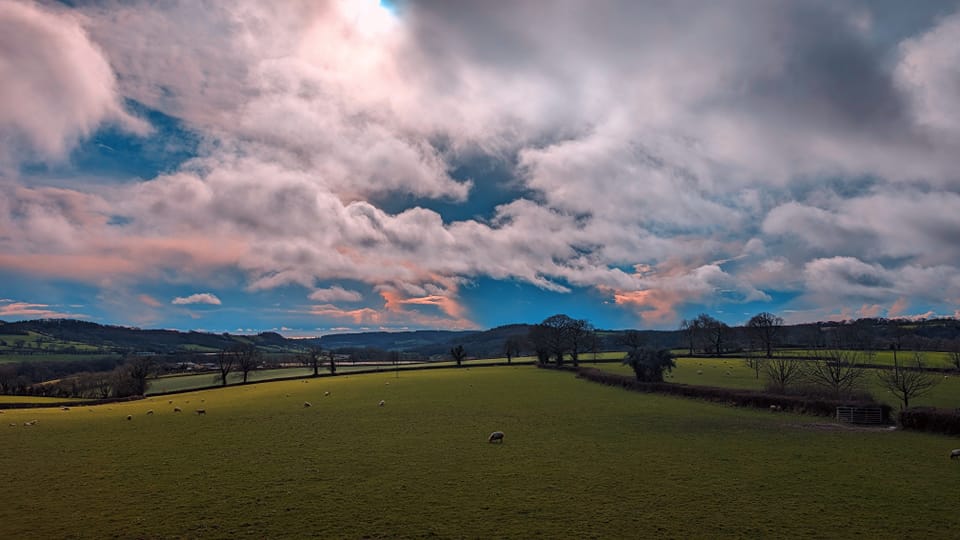
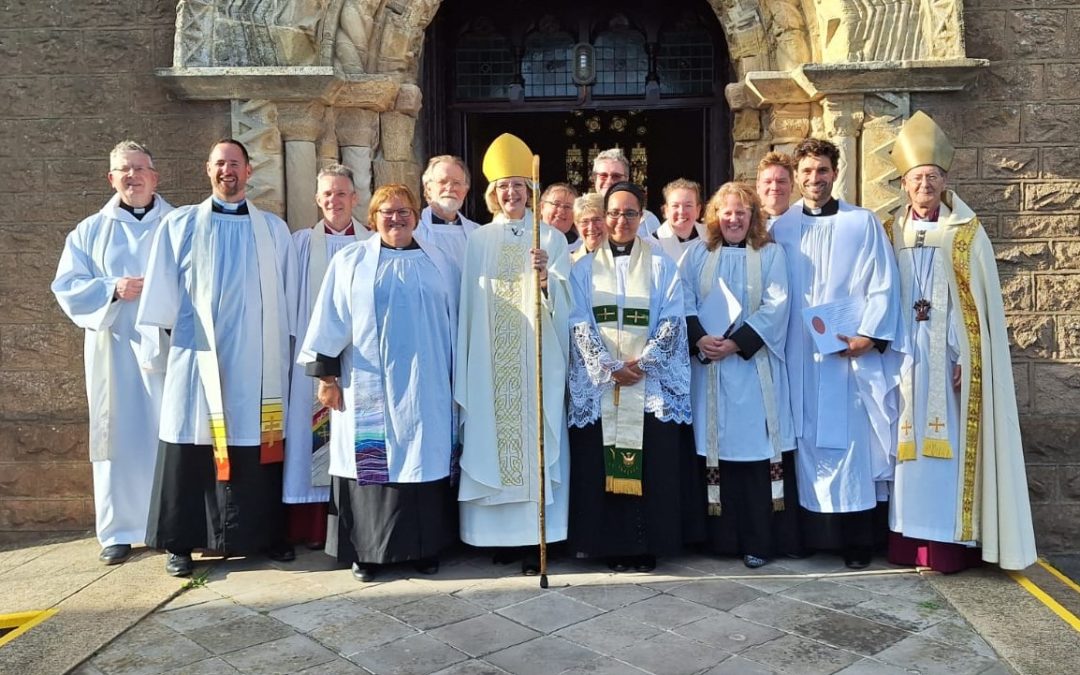
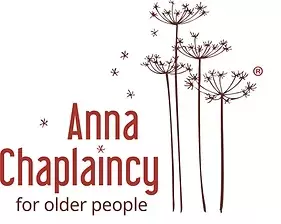
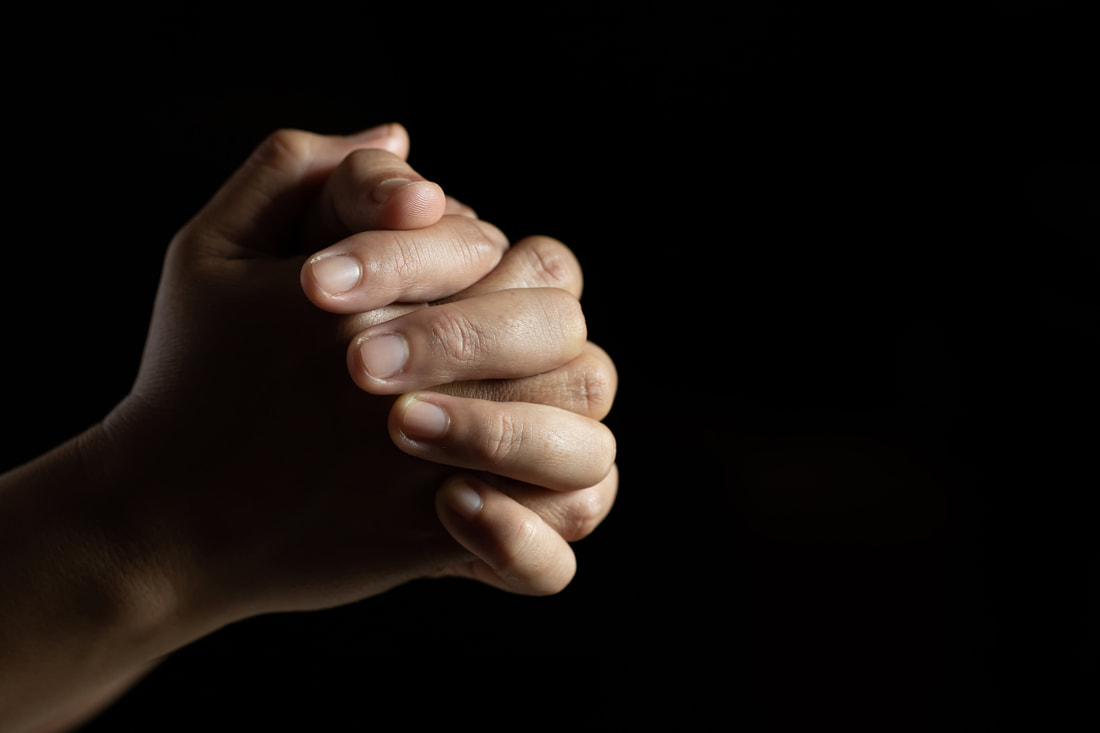
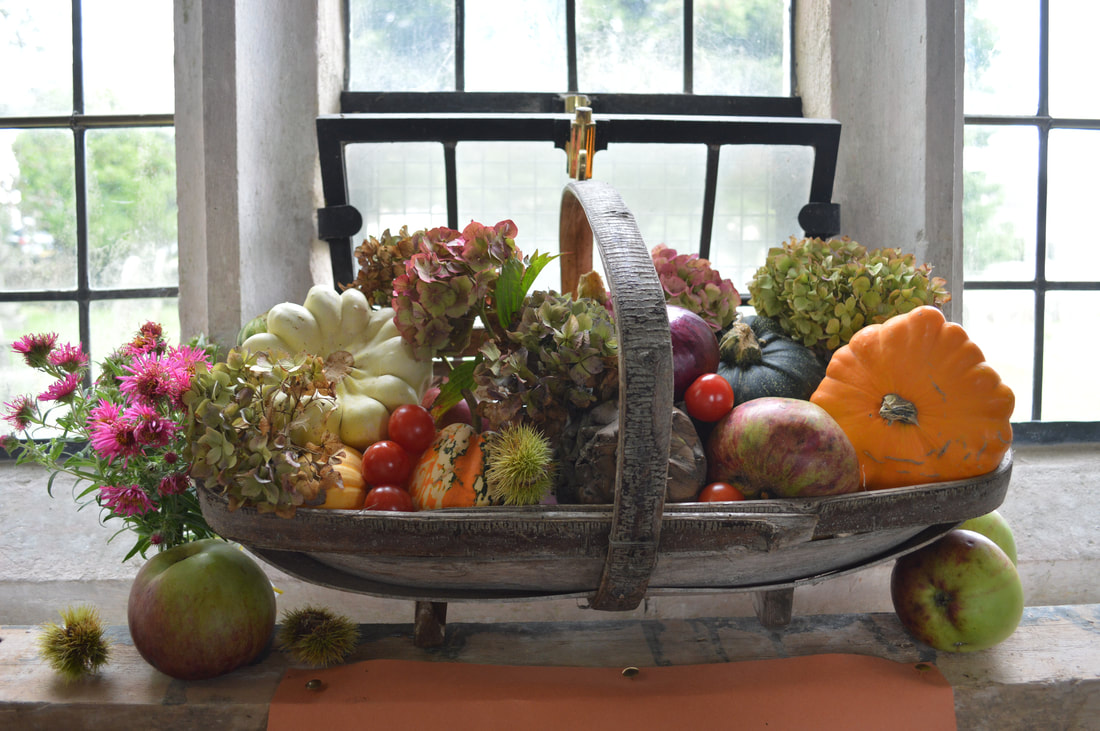
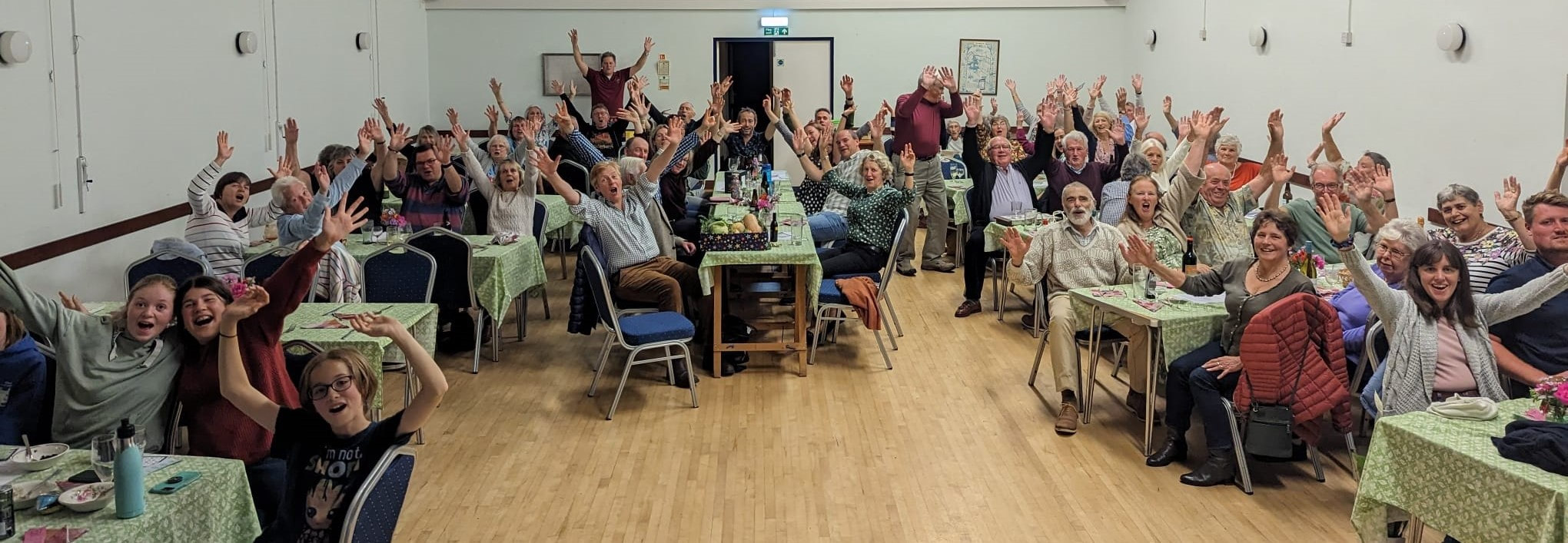


 RSS Feed
RSS Feed


